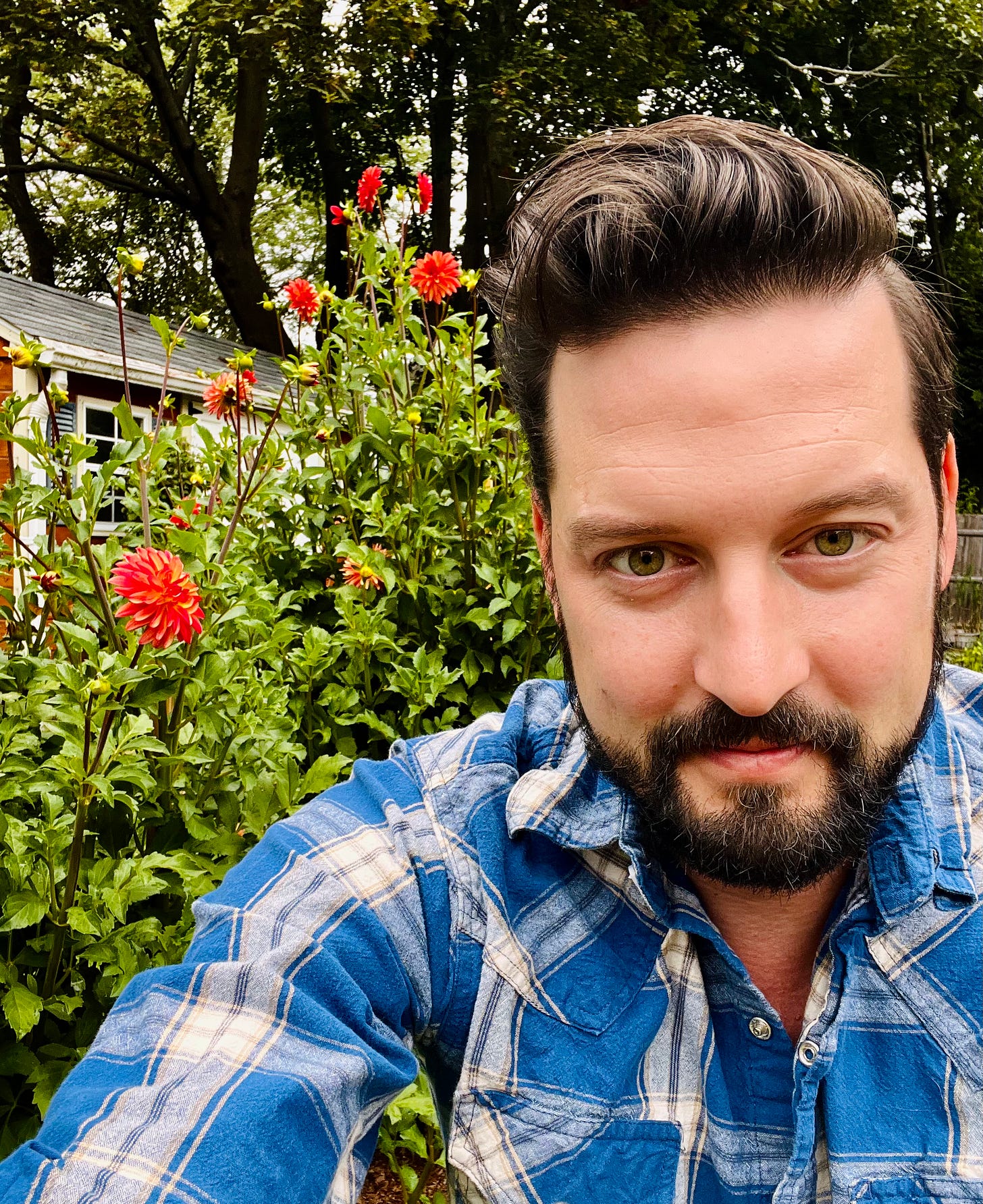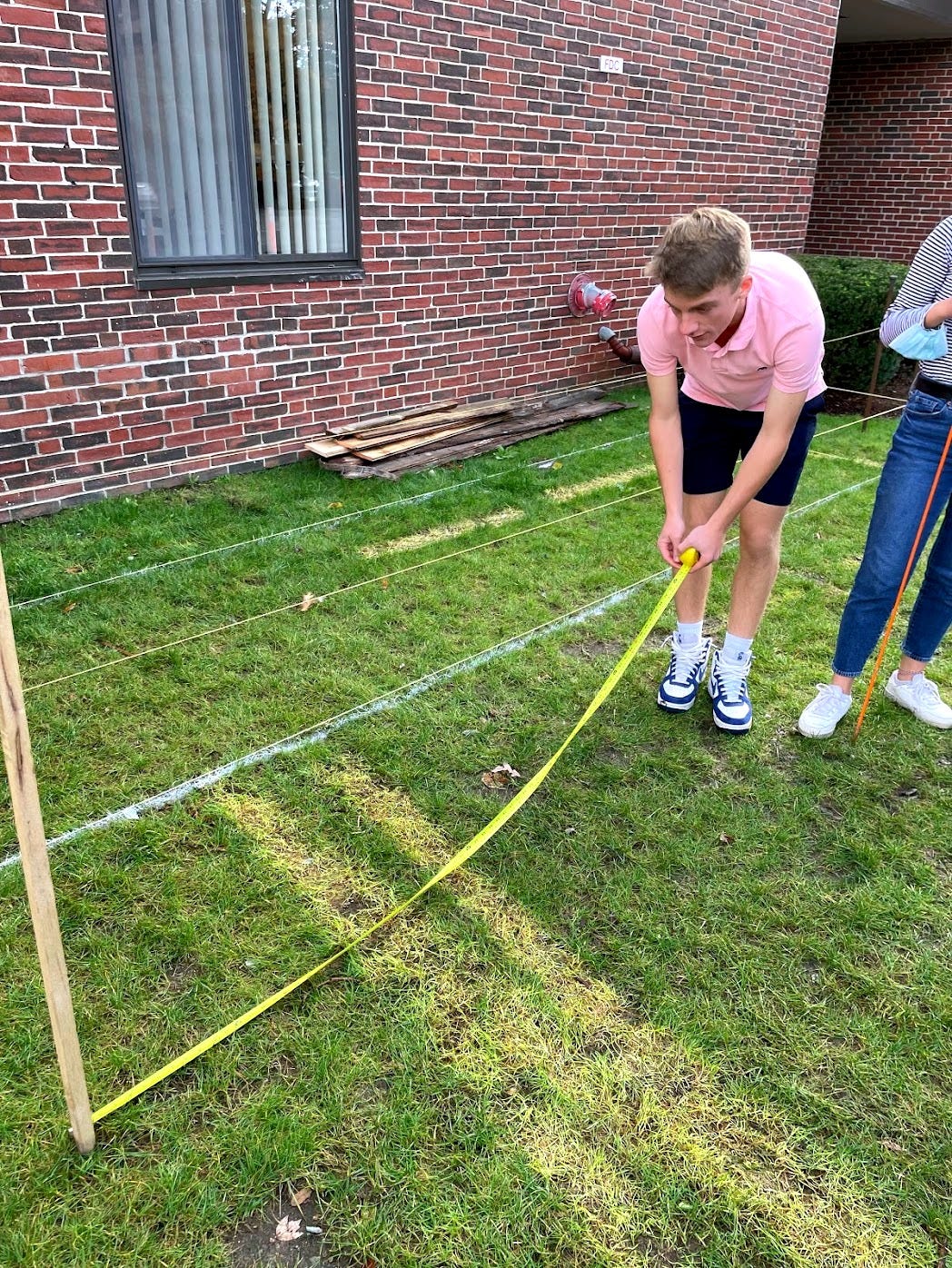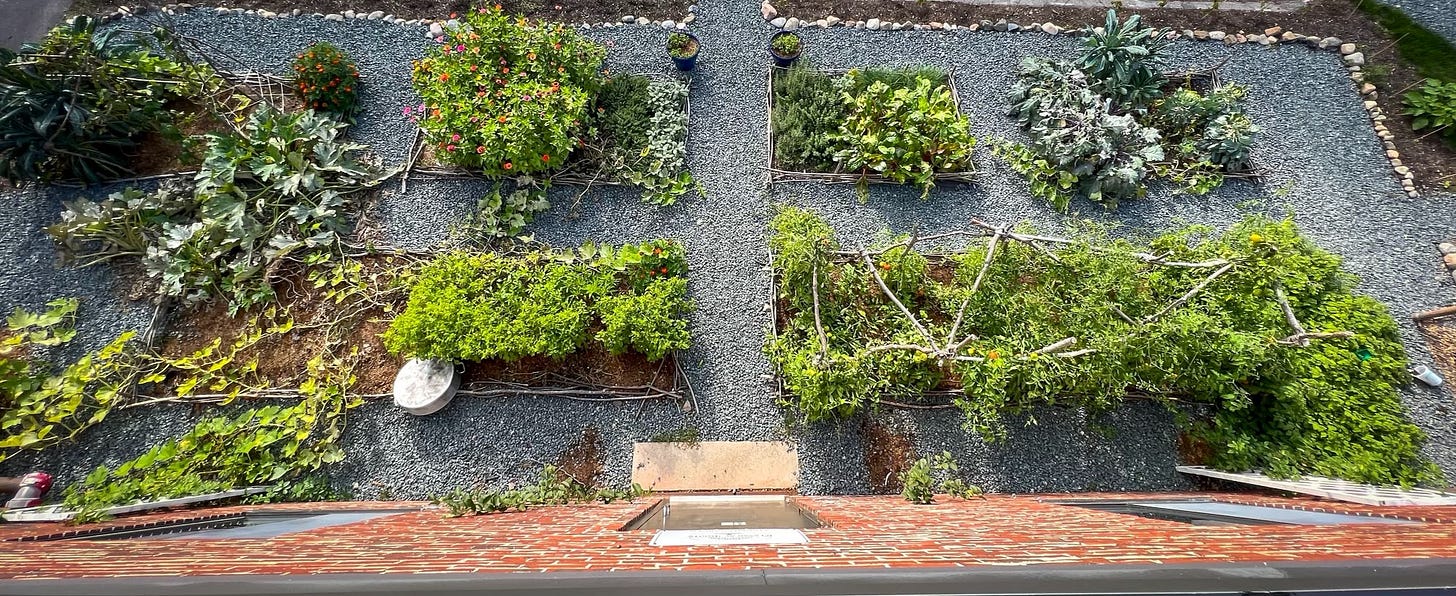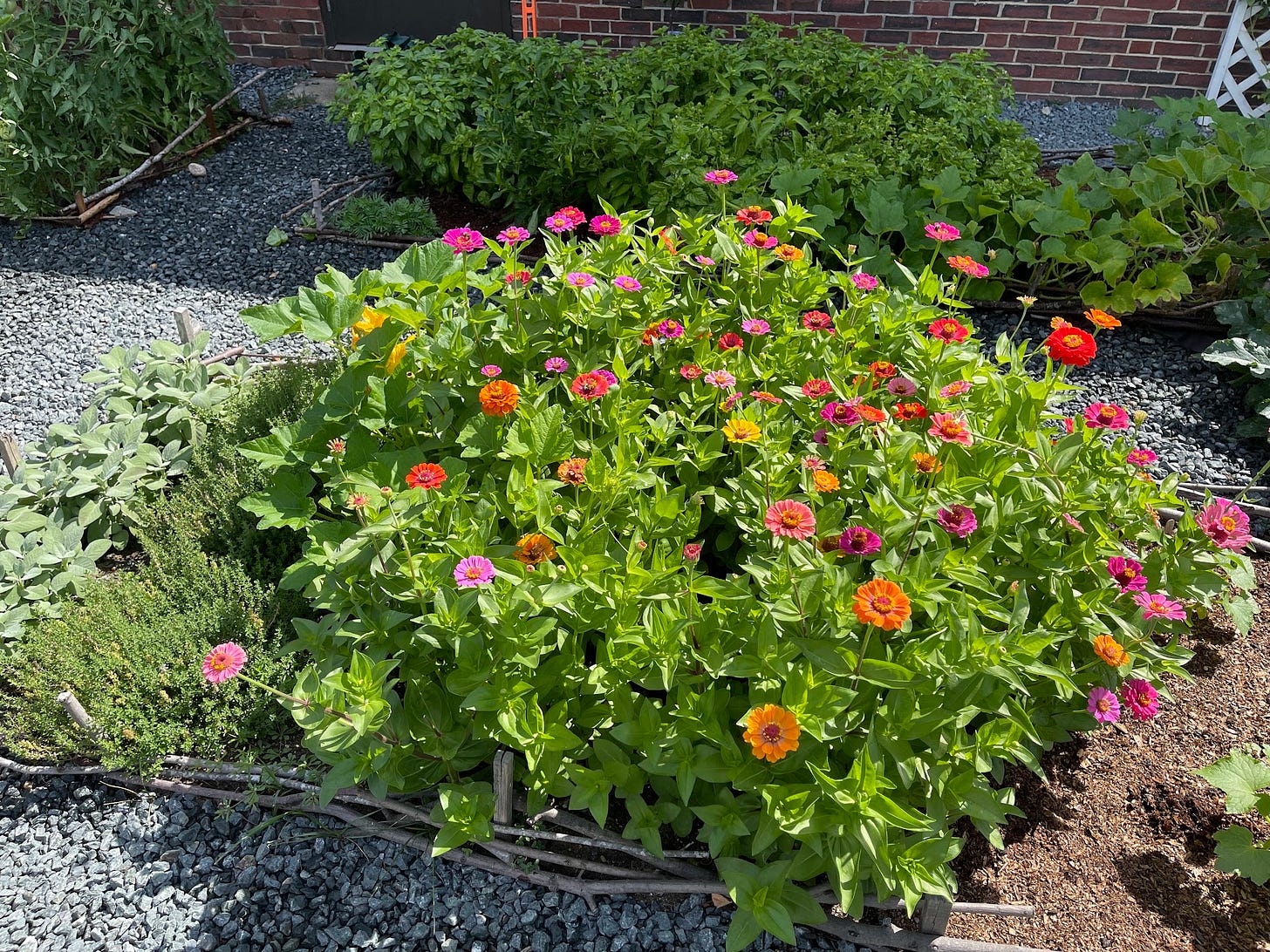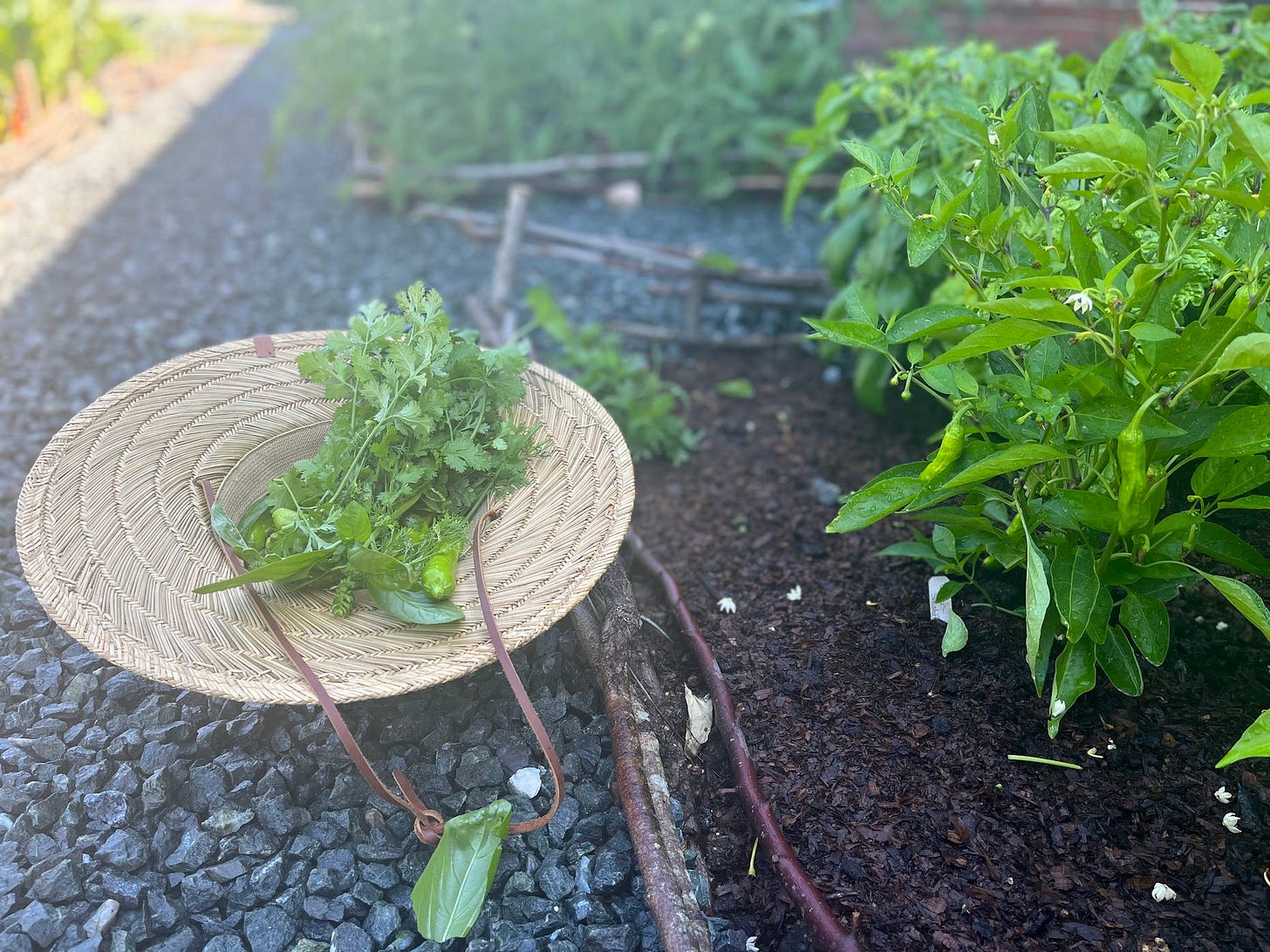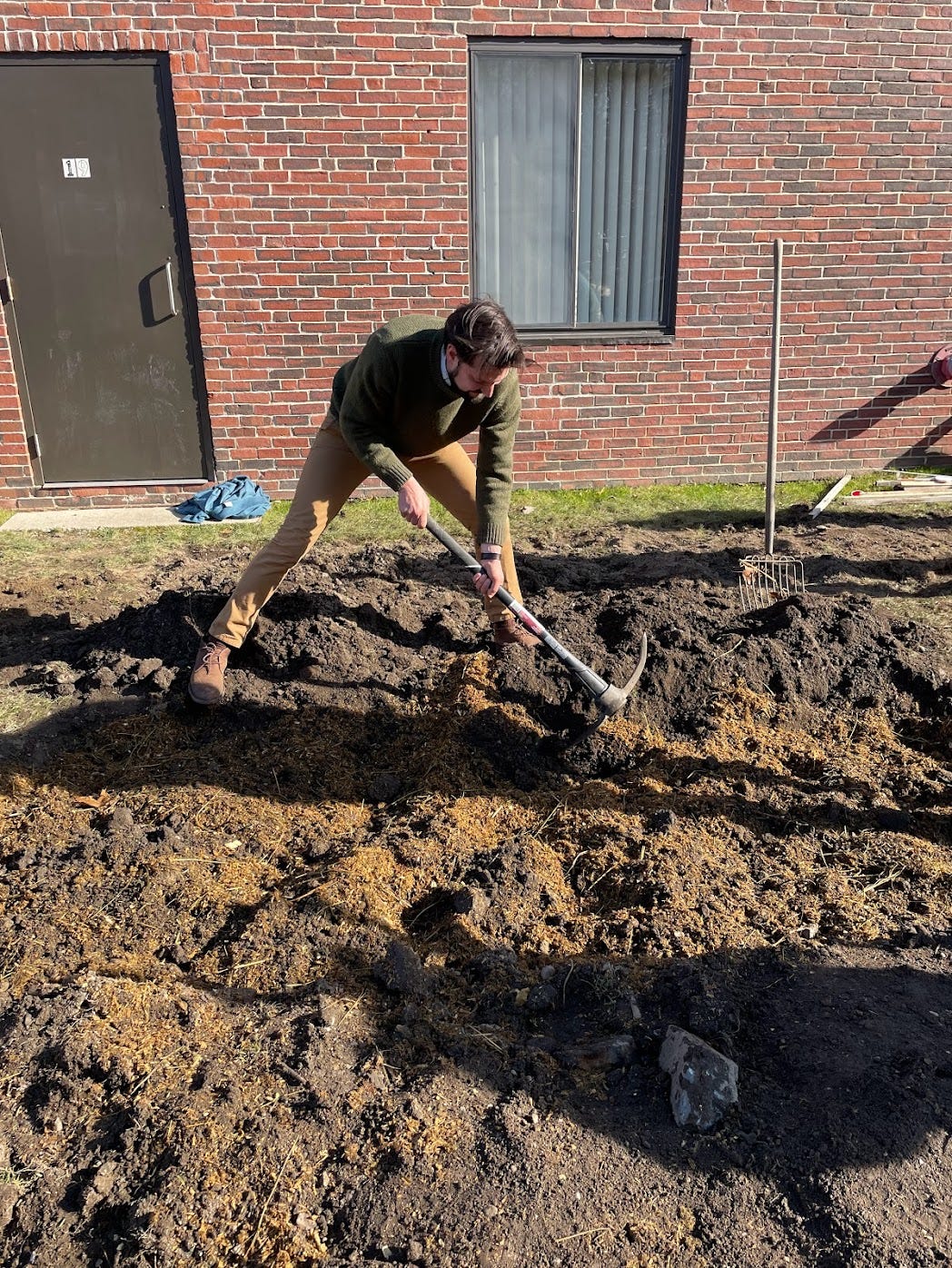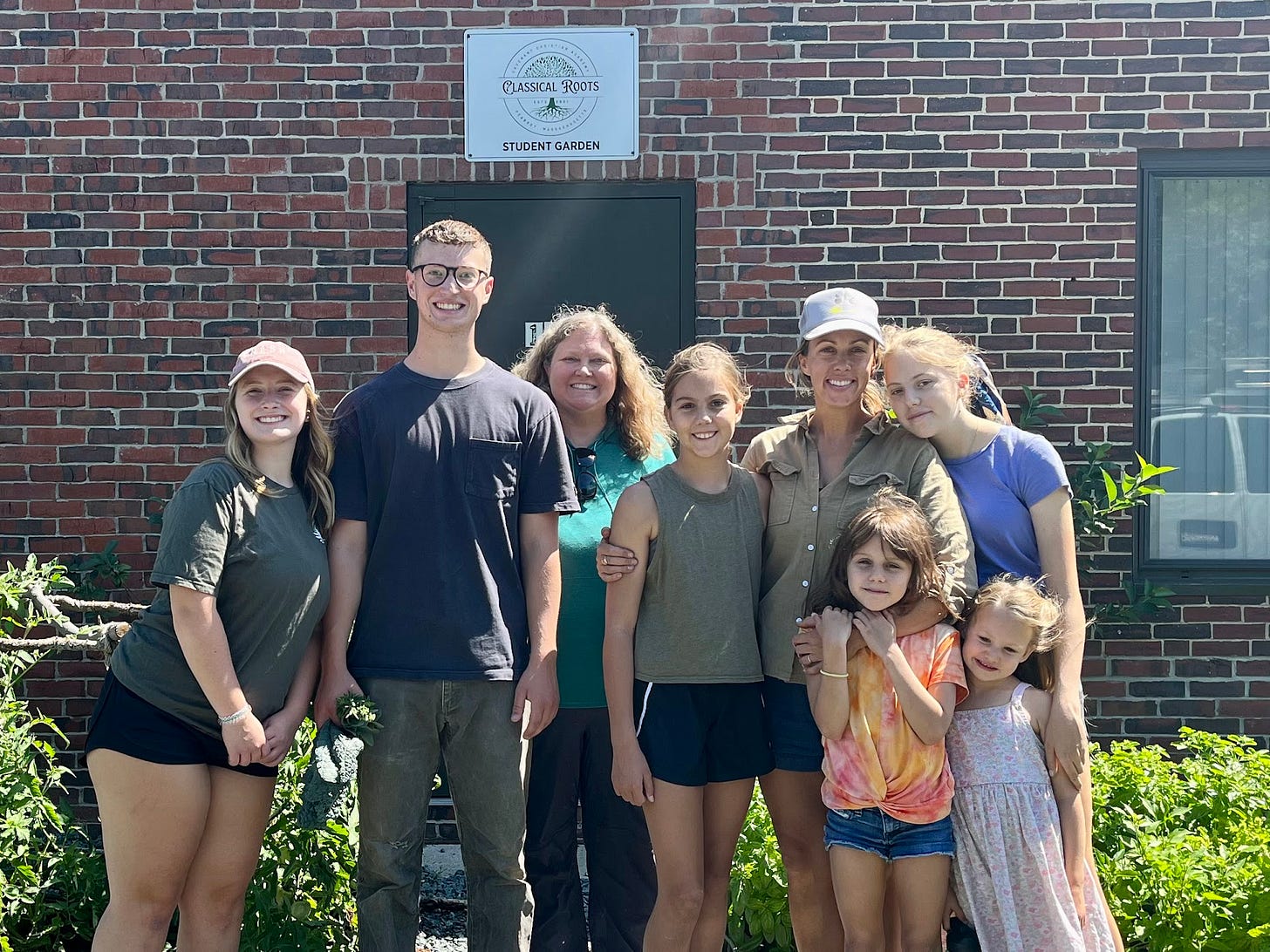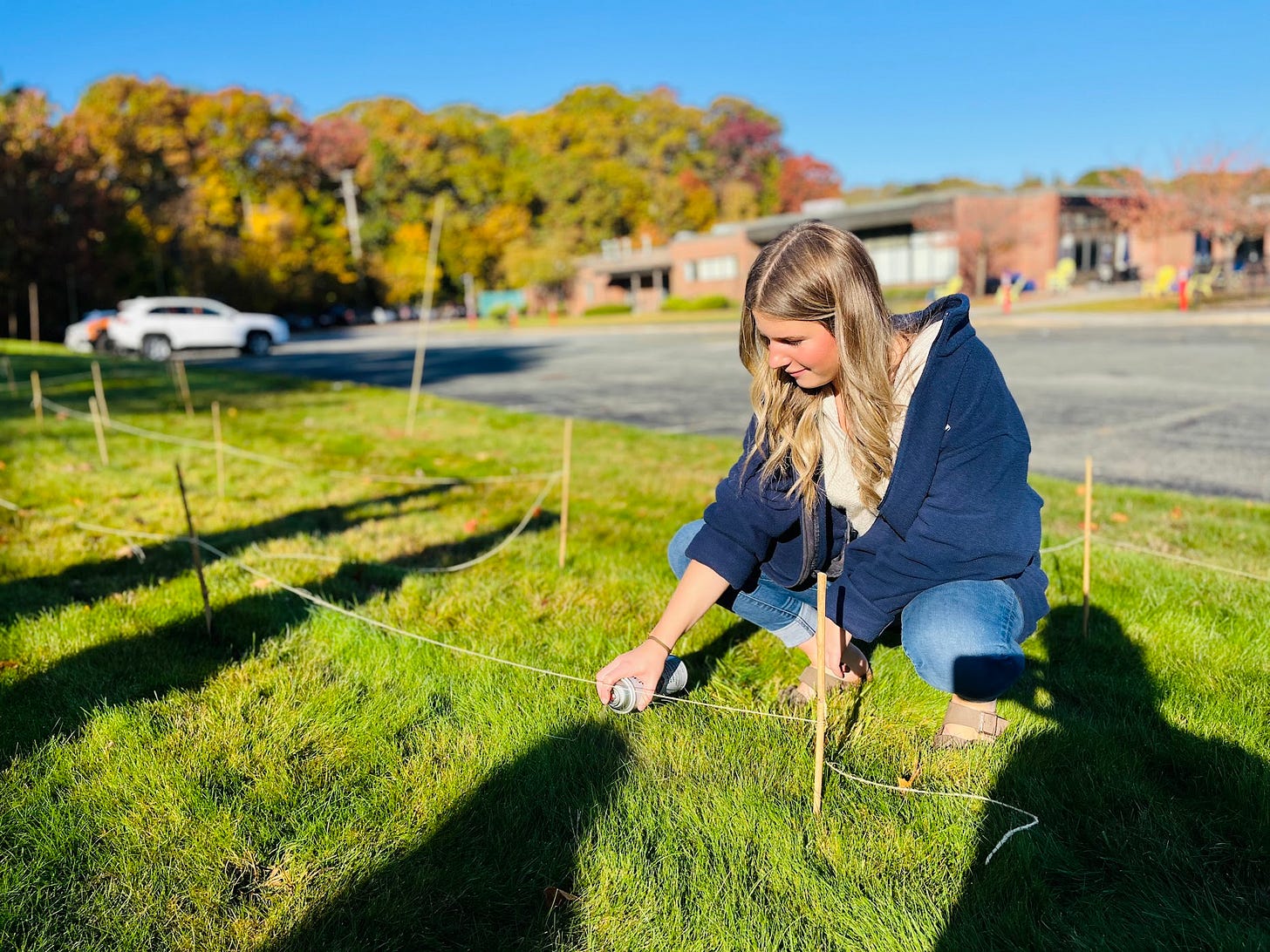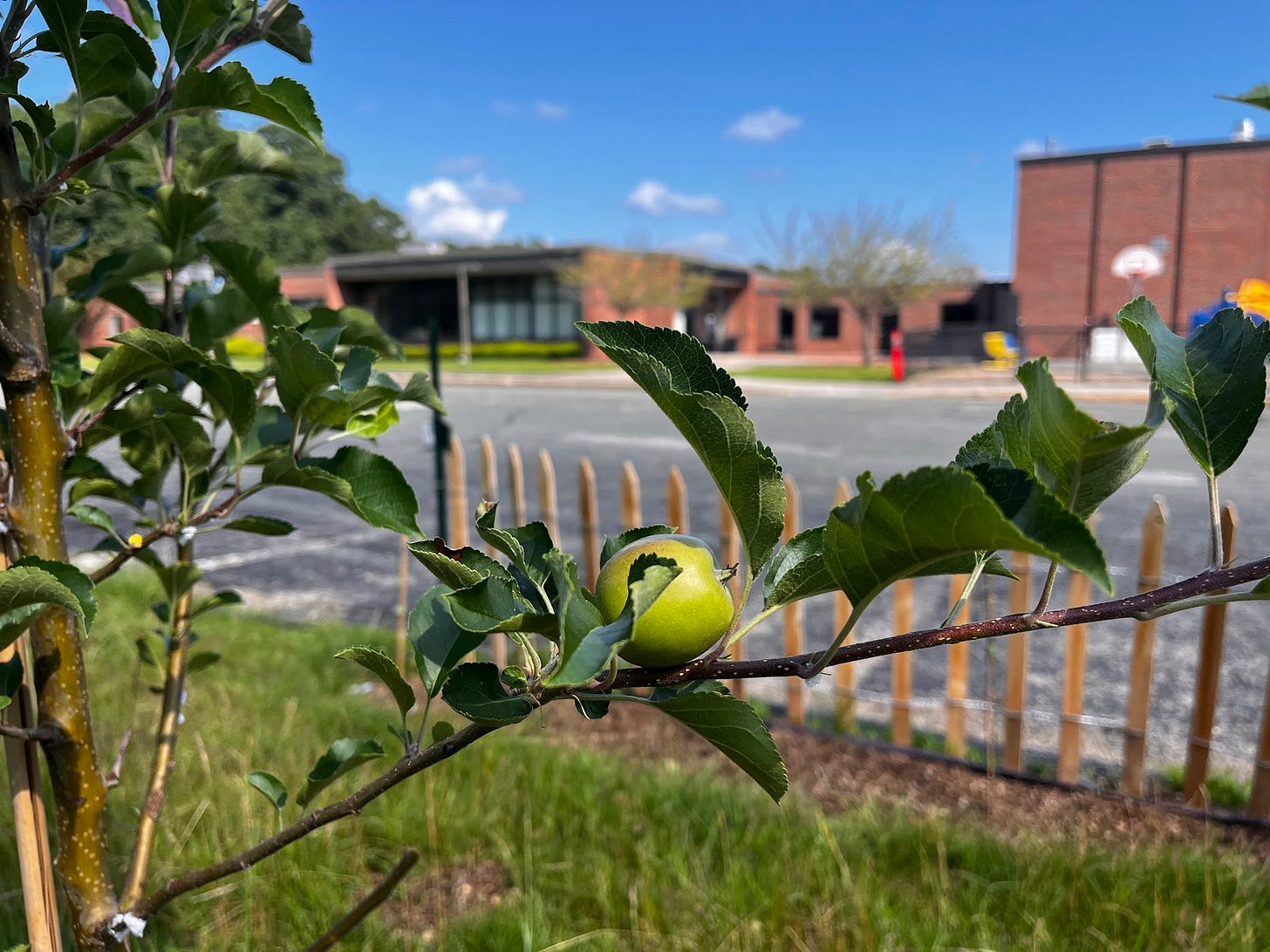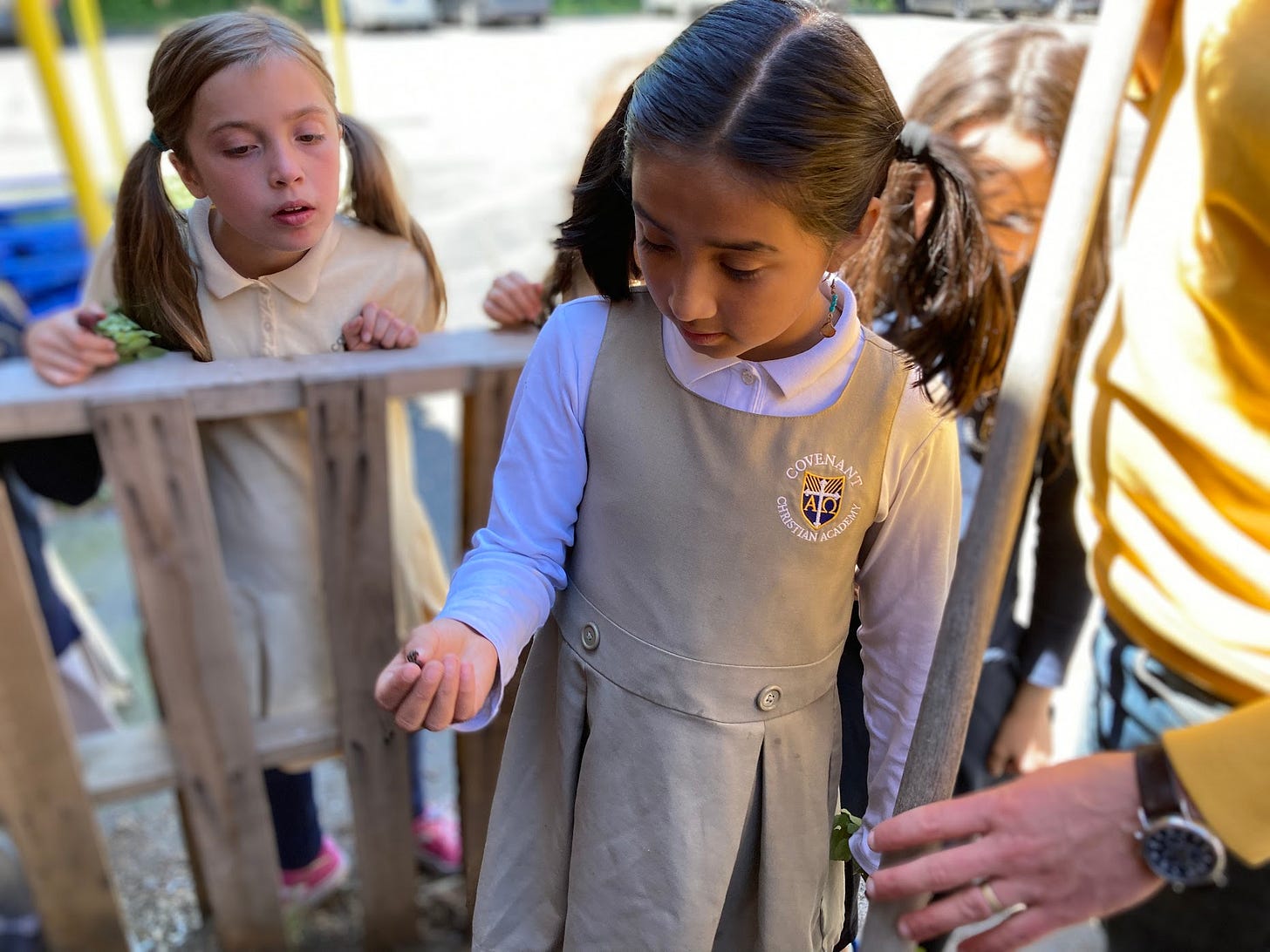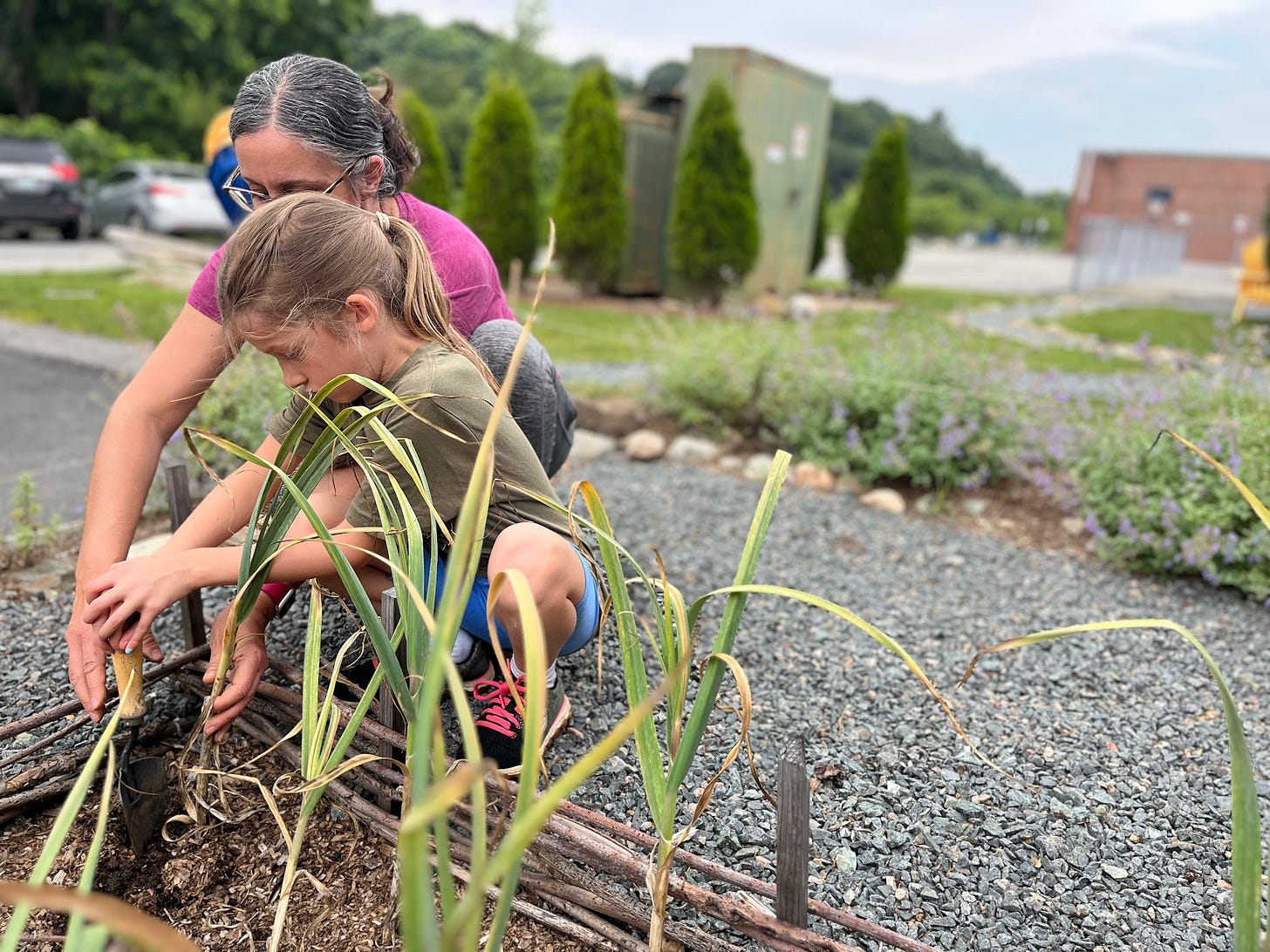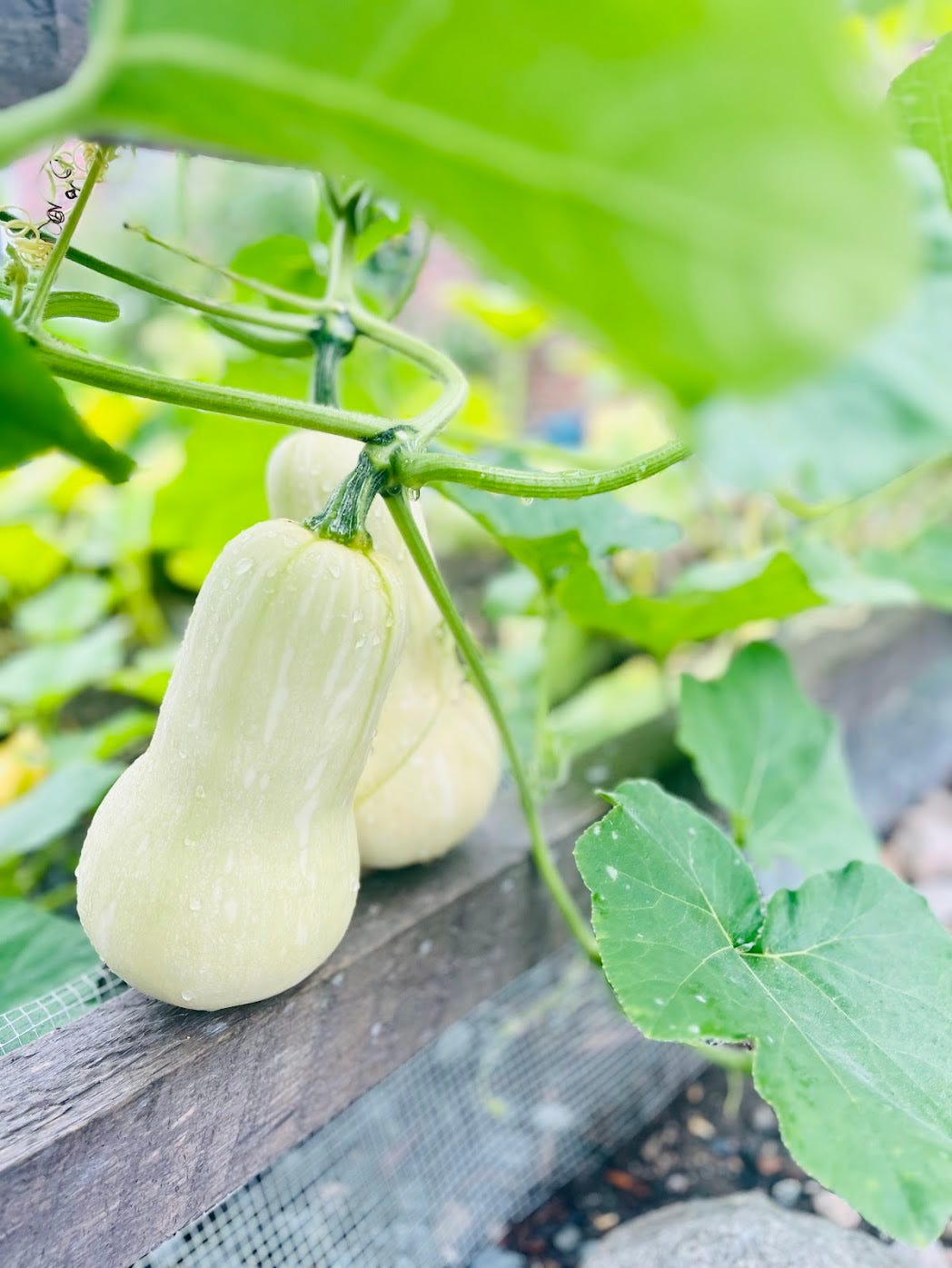Start Here
Welcome to Classical Roots
I’m Alex Miller, and this newsletter has something to do with a school garden.
The garden is at a Classical school north of Boston that decided to try something strange. In 2021, Covenant Christian Academy decided to start ripping up patches of grass and replacing them with ugly, amateurish gardens.
This wasn’t any ordinary school gardening program. It wasn’t a matter of growing a few vegetables. It wasn’t about adding something pleasant to look at outside a middle school classroom. And it wasn’t about turning a college prep school into an agricultural school. This wasn’t about learning agriculture. It was about agriculture as a form of learning.
All of that sounds very ambitious. And I suppose it was. It was about being Classical in the fullest sense of the word: treating students like whole, embodied humans who needed to be in touch with the rhythms of nature, of the year, and of their own lives. It wasn’t primarily about changing the campus. It was about changing the students—and ourselves.
It was about changing the school, from the roots up.
So—in the spirit of being right on the nose—we called it the Classical Roots Program. And it did start out with some physical changes. With nothing but hand tools and sweat, the students and I transformed this:
Into this:
That year, the graduating Class of 2021 mentioned the Classical Roots Program in their commencement speeches, in their thank-you letters, in their yearbooks. The following fall, Covenant Christian Academy created a student government council for the Program, and I became its official Steward, splitting my time between teaching English Literature and doing things like this:
The roots grew. A summer volunteer program emerged where CCA students and their parents could come to the garden on a Friday and spend all morning helping us tend, water, cultivate, and harvest from the new vegetable garden:
We ran out of space within the first two weeks and had to double the size of the volunteer program. And still, the school wanted more. That fall, a team of administrators approached me, asking if I had any more ambitious projects in mind. Some new kind of green space that anyone driving by the school could see. And I was happy to oblige.
We set about planning to turn a large swath of largely unused grass near the parking lot into a twenty-seven-tree fruit orchard. Within a year, we’d transformed this:
Into this:
And still things grew and grew. We started an in-school composting program, bringing in our youngest students to learn about the connection between what they eat and what they throw away:
We welcomed more and more new families to campus, many of whom said they were drawn to CCA specifically because of Classical Roots:
Why have students, parents, and administrators responded this way? Simple:
Gardens serve an essential educational purpose.
Since the Medieval period, monasteries—the cradles of our modern Classical Christian schools—were engaged in agricultural work. This work had both a practical and a formative aspect: it provided medicine and food, but also discipline and personal nourishment. The brilliant simplicity of a garden as an educational tool should not have come as such a surprise to us: it has been baked into our educational philosophy since its earliest history. This program was not something we needed to “fit in” to our programs as a Classical School—it was a missing piece of the classical puzzle. It was the best way of being ourselves. And we’re just getting started. As of 2025, Classical Roots is now an elective class that is forming a real, academically-credited part of the students’ life at CCA>
So, what brings you here?
You might not be a teacher, or a student, or a parent. You might simply be interested in gardening, or seasonality, or good writing. Or, you might be an educator yourself, or a mother of three, or a father of none, or a principal, or a tenth-grader. No matter who you are, you’re welcome here, and I think you’re going to find this newsletter useful and refreshing. It’s free for all, and comes out every week. Here, you’ll find monthly garden advice, student stories, flora and fauna deep-dives, tales of my many failures and my few vital successes.
But, most of all, you’ll be following a story: the story of a school that became itself by becoming a garden. The story of a few students, teachers, and families who planted an idea and reaped an incredible harvest.
I hope you’ll join us.


